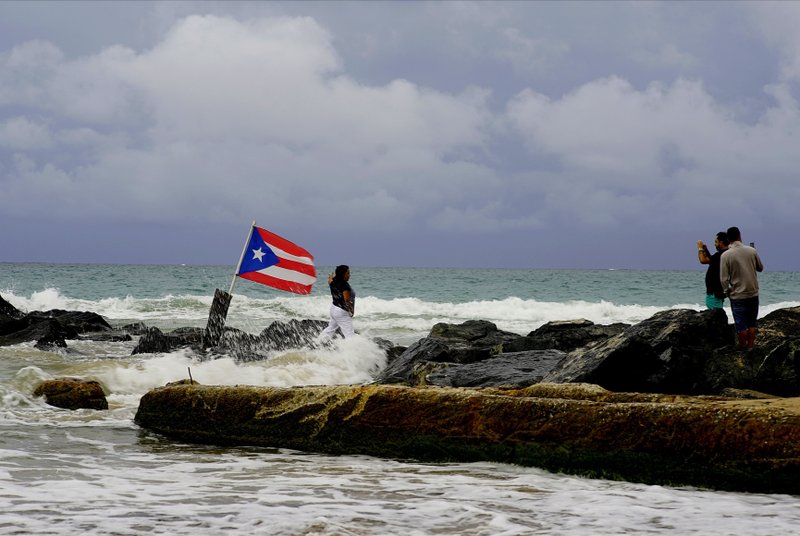

Hurricane Dorian, one of the longest-running storms in recorded history, left the Bahama Islands in destruction.
The death toll is now up to 50, with hundreds still missing. An estimated 70,000 Bahamians are homeless on Grand Bahama and Abaco Islands, according to the United Nations.
“They have lost entire communities,” said senior Liznery Hernandez, a political science major. “The situation that is happening there is serious that requires international resources. In the end, the Bahamas is not only a tourist attraction,” she said.
Hurricane Dorian spared Puerto Rico as it made its way through the Caribbean. However, according to a Washington Post article from Aug. 28, some Puerto Ricans did lose power during the storm due to intense rainfall and winds reaching up to 75 mph in some parts of the island.
Puerto Rico is still recovering from the destruction brought by Hurricane Maria in the fall of 2017.
“Maria helped us realize the reality of our state, that we were not prepared for a catastrophe or for a storm,” said Hernandez. “There was bad management of the emergency department, since we lacked, and still [lack], good electricity systems, antennas, aqueducts, food stores, among others.”
According to an article published by The New York Times from Aug. 28, in Ponce, Puerto Rico, the territory’s second-largest city on the south side of the island, the grid system is still held together with blue tape, and Puerto Rico as a whole has some 30,000 houses that still have blue tarps as temporary roofs.
In the midst of these conditions, Puerto Rican students at the University of Miami, whose parents and family members are still on the island, feared for the safety of their island and loved ones.
Sophomore Gabriela Solis Pomales, an exercise physiology major, said that she feared for her family but also the morale of the people of Puerto Rico.
As a Puerto Rican citizen who has lived in San Juan her whole life, she said she has seen this same sort of anxiety and dread among her people before and after Hurricane Maria.
“I am worried about Puerto Rico itself and the people because they are going to start losing hope again,” said Pomales.
Natalia Rodriguez Chavez, a sophomore majoring in biology, has lived in Ponce all of her life. Rodriguez Chavez said that she can still remember the day after Hurricane Maria vividly.
Rodriguez Chavez described the destruction the island faced, with power lines down, trees and natural vegetation completely uprooted and a loss of much of Puerto Rico’s beauty.
“In Ponce, the electricity came in about one month after,” said Chavez. “Running water, maybe one month and a half later. Signal—five to six months later.”
“If we get hit with another hurricane, the island is going to be full of destruction,” she added. “It would break my heart because the island cannot take it.”
After Hurricane Maria, Puerto Ricans struggled to contact family, with signal gone and power lines and telephone lines wrecked. Carolina Cruzval, a junior psychology major, who was in San Juan during Maria, recalled losing communication with family members for two weeks after the storm.“I can tell you that days after, it felt like there was a war,” said Cruzval. “You could see all the cables on the ground. You couldn’t see a leaf on a tree. The gas stations had huge lines. People were going crazy.”
When Hurricane Dorian passed by Puerto Rico and began to make its way toward South Florida, parents and families home in Puerto Rico shifted their worry and expressed deep concern for their students at UM.
“[My parents] called and told me that ‘your aunt plans on driving to Atlanta. Do you want to go with her?’ I told her ‘I am freaking, but I have a lot of schoolwork, so I will stay with a friend here. She has a safe place to be in,” Cruzal said.
Through these natural disasters, some look at these situations from a different perspective.
Sophomore architecture major Vanessa Crespo, who has lived in Puerto Rico her whole life, saw a more unified Puerto Rico after Hurricane Maria.
“We took so much pride in Puerto Rico that you can now see how we fought to take out the governor. Maria was a catalyst that made us stronger. We always need to see the positive side,” Crespo said.






